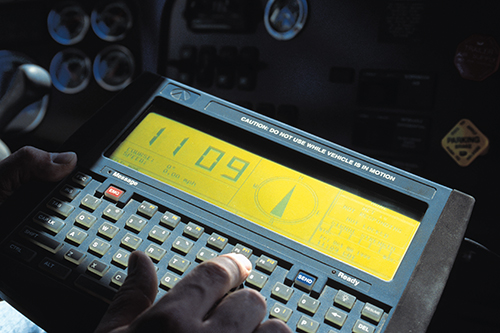
Key ELD questions answered
What operators need to know as the rule becomes law
By Mike McDonal
The recently released, highly anticipated 516-page Electronic Log Device (ELD) rule from the Federal Motor Carrier Safety Administration (FMCSA) covers the spectrum from technical configuration requirements to driver harassment violations.
What is the deadline to install ELDs?
As of December 15, 2015, anyone not yet using any type of ELD has until December 16, 2017 to register and install a certified ELD in the fleet. Operators now using an AOBRD prior to the ELD Rule have until December 2019.
Who needs an ELD?
After these deadlines, any driver currently using paper logs will need to convert to a certified ELD. The 100-air mile exemption, as well as the consecutive hours rule, still applies to all drivers. Any driver who completes eight or less logs in a 30-day period will not need to use an ELD. Discuss these options with the ELD providers under consideration, and ask how they record time for drivers in these situations.
What are the benefits of an ELD system?
An ELD system has the capability to do more than electronic log keeping. System providers include additional features at the time of purchase or any time after that provide data to help operators in many other ways. An ELD supplier should be able to configure a fleet management system to provide GPS, Wi-Fi, video and specialized metrics to improve fleet efficiency and driver safety performance.
Such an enhanced system could prove beneficial for operators hoping to move Beyond Compliance, a topic FMCSA is currently considering, by providing data to help BASIC safety scores. Operators who think only an ELD will suffice should at least choose a system that can grow with the company, rather than invest in additional hardware down the road.
How does an operator choose the correct ELD system?
Research various ELDs available in this new market, and visit the FMCSA website to be sure any unit under consideration is registered and certified. This certification process will be forthcoming over the next few months as FMCSA receives and considers submissions from vendors.
What is the best way to train drivers on ELDs?
It will take time to install the system and train drivers and staff to use this new equipment correctly. Begin with small groups of drivers and track their progress weekly. As each group becomes comfortable with the equipment and feels settled into the new routine, begin another group in the training process.
Who else needs ELD training?
ELD training includes the drivers, dispatchers, schedulers, as well as sales staff. The ELD calculates the duty status to the second as opposed to formerly rounding up or down to a 15-minute interval. Charter sales staff will need to verify customer itineraries closer than ever to ensure ample off-duty time for the driver and to stay within driving and on-duty regulations. A violation will show for a driver not off for eight hours before the next dispatch.
What prohibitions does ELD guard against?
Commercial carriers need to ensure drivers understand the consequences of these specific behaviors that could result in an out of service notice. Proper documentation is required to substantiate the log and avert a ruling of falsification.
Personal Conveyance – Refer to the Hours of Service regulations that cover authorized use of a company vehicle for personal use.
Unassigned Driving Time – A driver not identified as the designated operator of a commercial vehicle for a specific stretch of time or distance traveled is in violation.
Driver Coercion – The Hours of Service rules and ELDs will figure strongly in protecting drivers from charter customers and passengers who insist on a schedule in clear violation of hours-of-service restrictions and other safety regulations.
Driver Harassment – Any action by a motor carrier taken toward a driver known to be an HOS violation constitutes driver harassment, and only applies if the action involved information from an ELD, or other technology used in combination with an ELD.
How bus and coach operators use — or do not use — ELDs will profoundly affect the entire operation. As of now, the best advice is not to wait any longer to select and install an ELD system.
Mike McDonal serves as product director, regulatory compliance, for Saucon Technologies, Bethlehem, PA. Hundreds of motor coach companies trust Saucon Technologies, using the pinpoint GPS tracking, extensive reporting options, and dispatch tools that Saucon offers. Visit www.saucontds.com.
